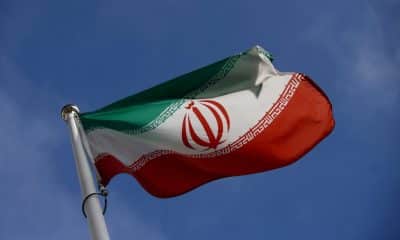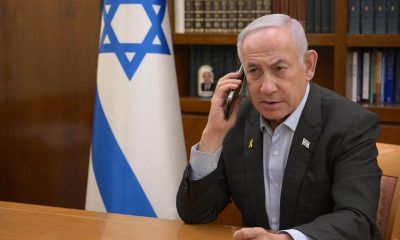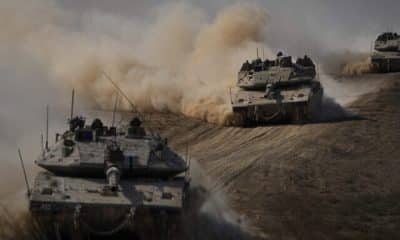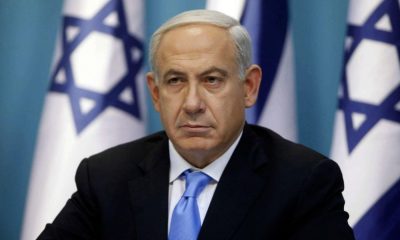Nigeria News
Israeli Envoy Reveals Foreign Country Behind Terrorism In Nigeria

Israeli Ambassador to Nigeria, Michael Freeman, has claimed that Iran is central to global terrorism and regional political instability, asserting that peace in the Middle East and parts of Africa may remain elusive without a shift in Iran’s current political leadership.
During the screening of the documentary “We Will Dance Again,” directed by Yariv Mozer, held in Abuja to mark the first anniversary of the Oct. 7 attack, Freeman stated: “The root of this war and the ongoing instability is Iran.”
“Iran supports and funds groups such as Hamas, Hezbollah, and the Houthis, fueling unrest across the Middle East. Their strategy involves significant financial investment, technical expertise, and weaponry to destabilize the region,” he continued. “Iran’s influence is also extending into Africa, with attempts to disrupt West African stability, including actions in Nigeria.”
Freeman further described Iran under its radical leadership as a regime that sponsors “terror, destruction, and misery” for millions, including its own citizens.
He urged the international community to act decisively: “The sooner the world addresses Iran’s leadership and initiates change, the sooner global peace can be achieved.”
Highlighting the broader threat, Freeman emphasized the need for global unity against terrorism.
“Terrorism in Israel doesn’t end there,” he remarked.
“We’ve observed radical terrorism here in Nigeria as well, similar to what we face in Israel. Terrorism knows no borders, and nations must collaborate, sharing expertise and resources to combat this common threat.
“Israel stands ready to assist any country committed to defeating terrorism,” Freeman assured.
He stressed Israel’s clear stance on the importance of recognizing terrorism’s nature: “Nigeria has been a target of extremist terrorism, and we must stand together with all nations fighting this battle to create a safer world.”
Freeman underscored the urgency of preventing future attacks like those seen on Oct. 7. “It’s essential to remember that what happened involved just one site,” he said. “We have yet to recount the stories of entire villages and communities where 900 people were killed—children murdered in their homes, some burned alive and others subjected to horrific violence.”
He also stated that Hamas’s ideology poses a fundamental barrier to peace: “Hamas is committed to Israel’s destruction and calls for the death of all Jews. Peace in the Middle East is unattainable as long as Hamas remains.”
Recalling Israel’s 2005 withdrawal from the Gaza Strip, Freeman noted that the move was intended to foster peace: “We removed all Israeli military personnel, civilians, and settlements, leaving behind infrastructure and opportunities for Palestinians to thrive. However, since Hamas seized power in 2007, they have imposed a brutal regime, diverting international aid towards terrorism, constructing tunnels, and amassing weapons, while impoverishing their population.”
“The loss of innocent lives, whether Israeli or Palestinian, is equally tragic,” Freeman said. “But we must address the root causes behind these tragedies to prevent future loss and build a path to lasting peace.”












